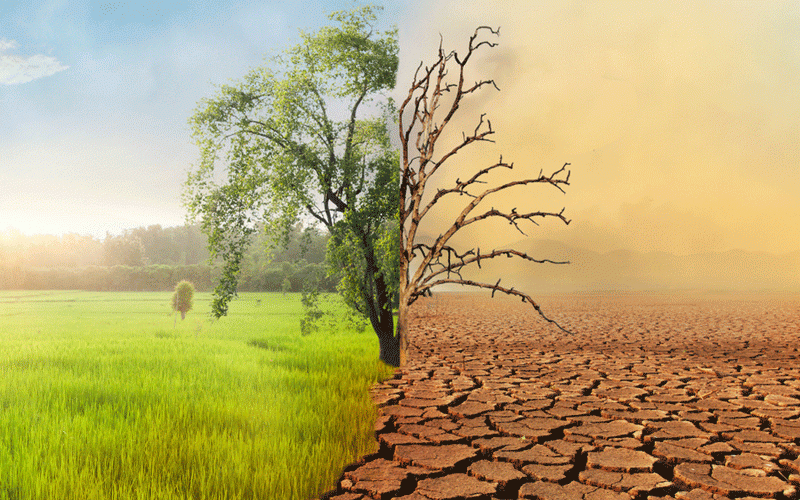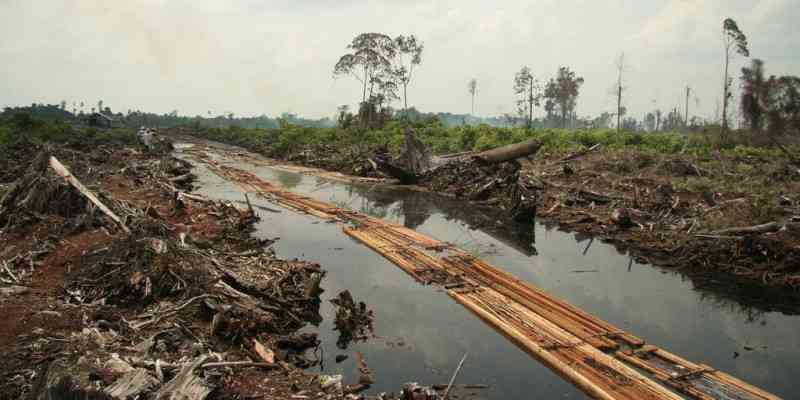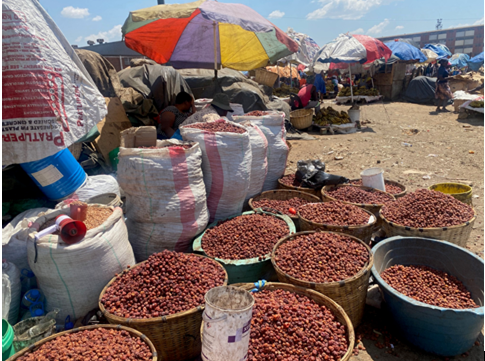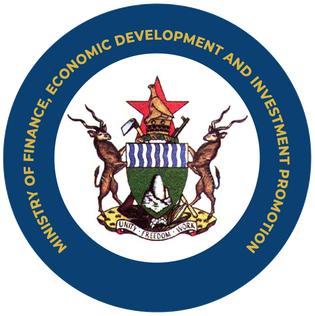
AS the African continent grapples with the intensifying impacts of climate change, the southern region finds itself at a critical juncture.
The ongoing El Niño phenomenon has unleashed severe drought conditions across Zimbabwe and much of southern Africa, exacerbating existing challenges and posing significant threats to food security, economic stability and social well-being. In the face of these mounting pressures, a powerful synergy is emerging between the energy and innovation of African youth and the deep wisdom embedded in indigenous knowledge systems.
This confluence presents a promising avenue for developing resilient and sustainable solutions to combat natural disasters.
The El Niño weather pattern, characterised by the warming of surface waters in the eastern Pacific Ocean, has far-reaching global impacts. In southern Africa, it typically manifests as reduced rainfall and elevated temperatures.
The current El Niño event triggered one of the worst droughts in recent history across Zimbabwe, Mozambique, Malawi and other neighbouring countries. In Zimbabwe alone, the Zimbabwe Vulnerability Assessment Committee reports that over 2,7 million people face food insecurity due to crop failure and livestock losses.
The situation is similarly dire in Malawi, where the government has declared a state of disaster in 23 of its 28 districts. Mozambique, still recovering from the devastating cyclones Idai and Kenneth in 2019, now faces additional challenges with water scarcity and declining agricultural yields.
In this context, African indigenous knowledge systems, developed over millennia, offer a wealth of strategies for environmental management, disaster prediction and climate-resilient agriculture.
These knowledge systems are deeply rooted in local contexts and have evolved through generations of observation, experimentation and adaptation. They encompass sophisticated methods for predicting weather patterns based on astronomical observations, animal behaviour and plant phenology.
- Harare’s drug lords ruling over ghettos
- 3,8m villagers face hunger
- 3,8m villagers face hunger
- Govt to roll out food relief programme
Keep Reading
Indigenous practices often emphasise soil conservation, water retention and biodiversity preservation. Local communities have developed and preserved seed varieties adapted to withstand harsh climatic conditions. Traditional methods of rainwater harvesting and aquifer management have sustained communities through historical drought periods.
Moreover, Indigenous cultures often have established mechanisms for community resource sharing and mutual aid during times of crisis.
African youth, armed with technological literacy and global connectivity, are increasingly recognising the value of indigenous knowledge in addressing contemporary challenges. Their engagement takes several forms, each contributing to the preservation, adaptation and scaling up of traditional wisdom in the face of modern environmental crises. Young researchers and community activists are working tirelessly to systematically document indigenous knowledge before it is lost to time.
In Zimbabwe, the Youth Empowerment and Transformation Trust has launched initiatives to record traditional practices related to climate resilience. They are creating digital archives accessible through mobile apps, ensuring this knowledge reaches a wider audience and remains relevant for future generations.
Youth-led startups are finding innovative ways to blend indigenous wisdom with cutting-edge technology. In Malawi, a group of young entrepreneurs has developed a mobile application that combines traditional weather prediction methods with satellite data to provide more accurate and localised forecasts for farmers.
This fusion of ancient observation techniques with modern meteorological data exemplifies the potential for synergy between different knowledge systems. In Mozambique, youth agricultural cooperatives are reviving ancient techniques of intercropping and agroforestry. They are adapting these methods to current conditions and sharing their experiences through social media platforms, creating a network of knowledge exchange across the region.
This revival of traditional practices, enhanced by modern communication tools, demonstrates how youth can act as bridges between generations and across geographical boundaries.
Young activists are also pushing for the inclusion of indigenous knowledge in national disaster management strategies.
The African Youth Initiative on Climate Change has been instrumental in advocating for policy changes that recognise and incorporate traditional wisdom in climate adaptation plans.
Their efforts highlight the importance of integrating diverse knowledge systems into formal governance structures. Education plays a crucial role in this youth-led revival of indigenous knowledge.
Youth-led organisations are developing programmes that integrate traditional ecological wisdom into both formal and informal learning settings. In Zimbabwe, the Organisation of Rural Associations for Progress runs youth camps where elders share traditional ecological knowledge alongside lessons on modern conservation techniques. These initiatives not only preserve valuable knowledge but also foster intergenerational dialogue and cultural pride.
The Tonga people of the Zambezi Valley in Zimbabwe provide a compelling example of how youth are engaging with indigenous practices to address current challenges. The Tonga have long practised a system of flood recession agriculture known as "infielding," which involves planting crops in the fertile soils left behind as flood waters recede.
Young Tonga activists have been working to document and promote this practice, which not only provides food security during drought periods but also helps to manage soil erosion. Their efforts demonstrate how localised indigenous knowledge can offer solutions to broader regional challenges.
In Malawi, the threat of losing crop diversity due to commercial agriculture and climate change has spurred young people into action. They have established a network of community seed banks that preserve local, drought-resistant varieties of crops such as sorghum, millet and legumes.
These youth combine traditional seed saving techniques with modern storage technologies and use social media to co-ordinate seed exchanges across different regions. Their work ensures the preservation of genetic diversity crucial for adapting to changing climatic conditions.
Coastal areas face their own set of challenges and here too, youth are drawing on indigenous wisdom to develop solutions. In Mozambique, youth groups are leading mangrove restoration efforts based on traditional coastal management practices.
These projects do not only protect coastlines from erosion and storm surges but also enhance biodiversity and provide livelihood opportunities. The young activists integrate traditional knowledge of mangrove ecology with modern mapping technologies to optimise restoration efforts, showcasing how indigenous practices can be scaled up through technological innovation.
Despite the promise of this youth-led revival of indigenous knowledge, several challenges remain. There is often a perception that traditional wisdom is outdated or unscientific, requiring concerted effort to validate and communicate its relevance in contemporary contexts.
As elder generations pass on, there is a risk of losing valuable information, necessitating urgent documentation efforts. Indigenous practices may need modification to address the unprecedented scale and intensity of current climate challenges.
Finding ways to scale up localised indigenous practices to regional or national level remains a significant challenge. However, these challenges also present opportunities for innovation and cross-cultural dialogue. The process of integrating indigenous knowledge with modern science can lead to novel solutions and foster a more inclusive approach to disaster management.
It encourages a re-evaluation of what constitutes valuable knowledge and promotes a more holistic understanding of environmental systems.
The convergence of youthful energy and ancient wisdom represents a powerful force in the fight against natural disasters in southern Africa. As the region grapples with the impacts of El Niño and the broader challenges of climate change, the role of youth in scaling up and innovating with indigenous knowledge becomes increasingly crucial. In bridging traditional ecological knowledge with modern technology and global networks, young Africans are not only addressing immediate disaster risks but also fostering cultural pride, promoting sustainable development and building resilience for future generations.
Their efforts demonstrate that solutions to global challenges often lie in the synthesis of diverse knowledge systems, adapted and scaled for the complexities of the modern world. As we move forward, it is essential to support these youth-led initiatives through policy recognition, funding and platforms for knowledge sharing.
The future of disaster resilience in Africa may well depend on our ability to empower youth as custodians and innovators of indigenous wisdom in the face of unprecedented environmental change.
To this end, the story of African youth engaging with indigenous knowledge to combat natural disasters is one of hope, innovation and cultural revival.
It reminds us that in our search for solutions to global crises, we must look not only to the future but also to the wisdom of the past. In empowering youth to bridge these worlds, we open new pathways to resilience and sustainability in the face of an uncertain climatic future.
- Lawrence Makamanzi writes in his personal capacity and is reachable at his email address [email protected] or 0784318605.











